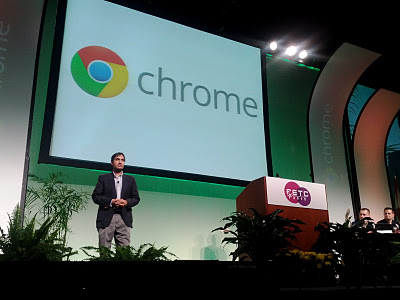During this morning’s keynote at the annual Florida Educational Technology Conference (FETC) conference in Orlando, Florida, Google’s Product Manager for Chromebooks, Rajen Sheth, shared an update on Chromebooks‘ headway in educational institutions. According to Sheth, today there are now “hundreds” of schools using Chomebooks in 41 states across the U.S.
There are, of course, some caveats to those figures. For starters, no exact number of Chromebook devices was given. In addition, among those “hundreds” of schools being counted, some may be only using a single set of Chromebooks in their institution, from the sounds of it. And what constitues a “set?” That, too, is unknown. According to Sheth, of the “hundreds of schools” using Chromebooks, Google is counting those that have “outfitted at least one classroom with Chromebooks.”
A more interesting figure is the one that was not shared – how many individual Chromebooks have actually made their way into the U.S. school system?
Sheth also announced three new major deployments of Chromebooks in school districts, which, while clearly individual “wins” worth bragging about, aren’t necessarily indicative of the Chromebook’s overall momentum.
Combined, the three deployments will see 27,000 students provided with Chromebooks – a 1 student per 1 Chromebook ratio. These newly signed up districts include the Council Bluffs Community School District in Iowa which is deploying 2,800 Chromebooks in its high school and 1,500 in two middle schools, the Leyden Community High School District in Illinois which is giving the devices to 3,500 students in their two high schools, and the Richland School District Two in South Carolina which will deploy 19,000 computers.
But given the very introductory nature of this morning’s keynote – a keynote which focused on Chromebook’s advantage over traditional PC’s (Chromebooks automatically update!, less headaches for I.T.!, it’s all web!, etc.), it’s clear that Google’s Chromebook push is in very early stages yet.
